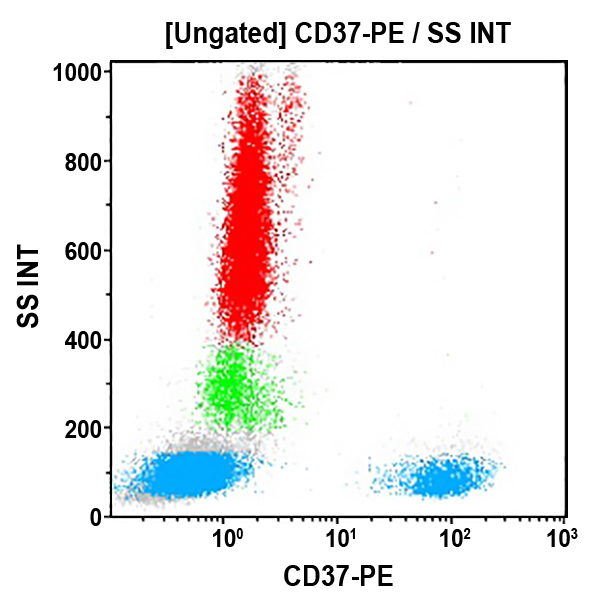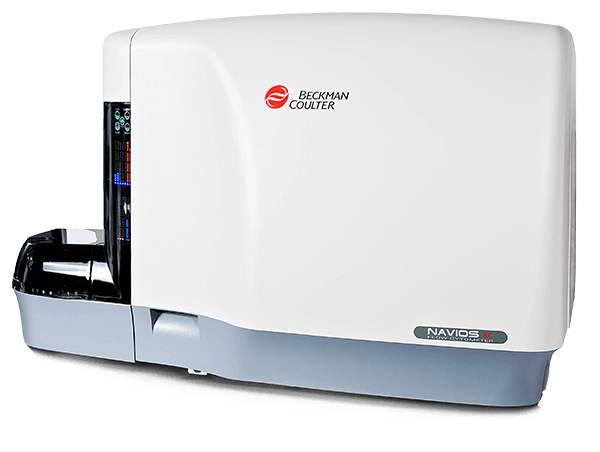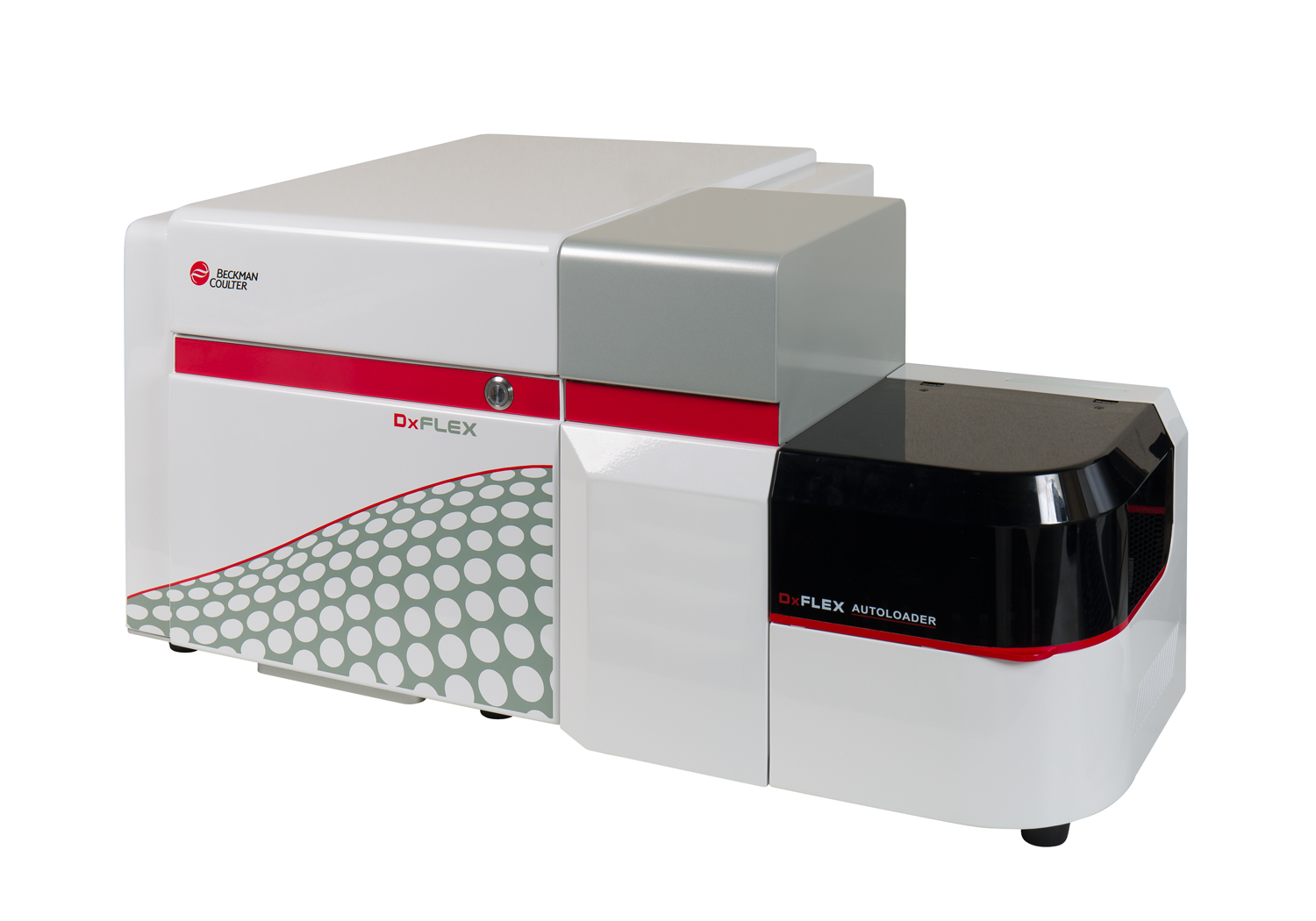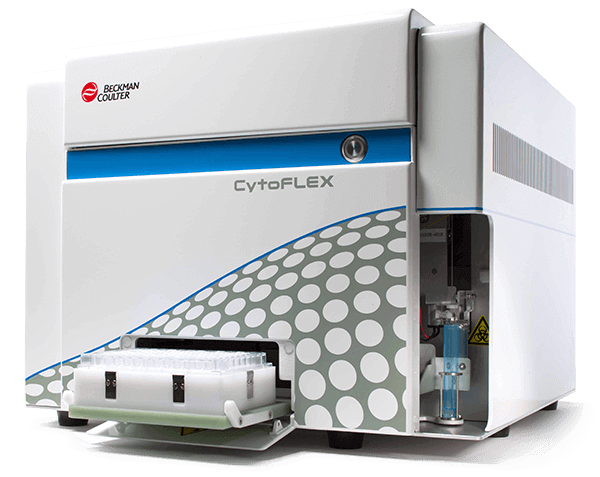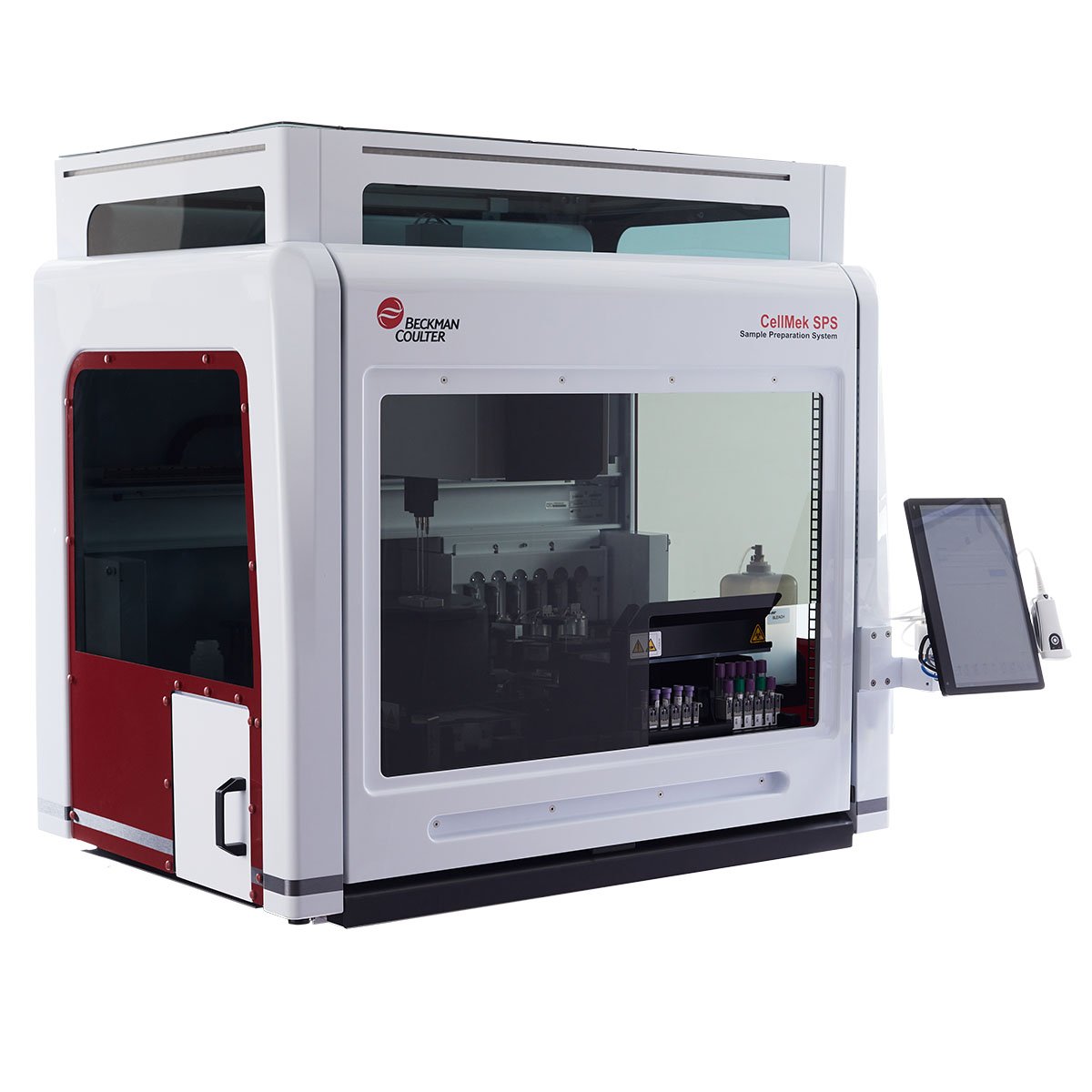CD37 Antibodies
The CD37 antigen is a 40-52 kDa single chain transmembrane protein with 4 transmembrane domains (Tetraspan/TM4SF). It has both its NH2‑ and COOH-termini inside the cells, and is heavily glycosylated on one extracellular loop. Its main feature is its high content of hydrophobic residues (45%). CD37 is strongly expressed on the surface of human peripheral blood B lymphocytes and on B cells from germinal centers. In the ontogeny of B cells, this antigen appears late, after the pre‑B stage, and is not expressed on plasma cells. CD37 has a low expression on T lymphocytes, granulocytes, and monocytes. It is weakly expressed by other cellular types such as Langerhans cells, macrophages, normal medullar granulous cells and peripheral blood polymorphonuclear cells. CD37 is involved in signal transduction.
| Clone: BL14 | Isotype: IgG1 Mouse |

